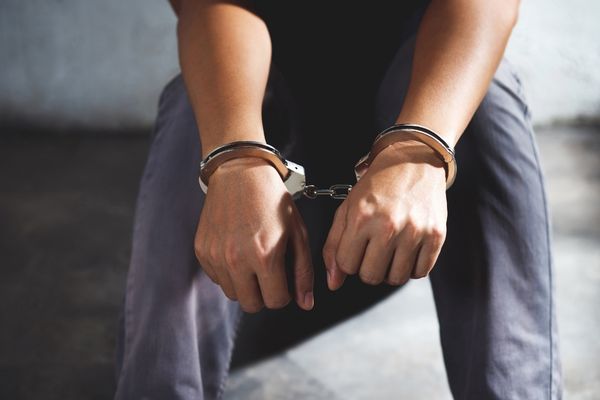WHAT IS AN ARREST?
In Bolivia, arrest is a legal measure established in the Code of Criminal Procedure, which may be ordered by a judicial or prosecutorial authority under specific circumstances. There are two main forms of arrest:
- During the initial investigation phase, when the immediate identification of perpetrators, participants, or witnesses is not possible, and it is necessary to prevent communication, tampering with the crime scene, or fleeing. In such cases, the prosecutor or police may order the arrest of persons present, for a maximum of eight hours.
- Against an uncooperative witness, who refuses to testify after being duly summoned. Such a person can be arrested for up to twenty-four hours, and if the refusal persists, criminal charges may be initiated.
Additionally, arrest is one of the types of warrants that a judge or tribunal may issue.
WHAT IS APPREHENSION?
Apprehension refers to any restriction on a person’s freedom of movement with the aim of bringing them before the competent judicial authority, who will then determine the appropriate legal measures. There are three main types of apprehension:
Apprehension by the Prosecutor’s Office
When the presence of the accused is necessary and there is reasonable suspicion of involvement in a public criminal offense with a potential sentence of more than two years, and there is a risk of flight or obstruction of the process, the prosecutor may order the apprehension. The apprehended individual must be presented to a judicial authority within 24 hours to determine whether any precautionary measures are needed.
Apprehension by the Police

Apprehension by Private Citizens
Private individuals have the right to apprehend someone caught in flagrante delicto while committing or attempting to commit a crime. They are obligated to immediately turn the individual over to the police or prosecutor.
WHAT IS PREVENTIVE DETENTION?
Preventive detention is a precautionary personal measure within criminal proceedings that temporarily and exceptionally restricts an individual’s liberty, with the sole purpose of ensuring the effectiveness of the criminal process and the execution of a future sentence.
KEY DIFFERENCES BETWEEN ARREST, APPREHENSION, AND PREVENTIVE DETENTION
| DIFFERENCES | |||
|---|---|---|---|
| ARREST | APPREHENSION | PREVENTIVE DETENTION | |
| Requires formal charges | No. This deprivation of liberty occurs at the initial stage of the investigation, possibly right after the crime has been committed. | No. For this measure to apply, the person must have an open criminal case or have been caught in flagrante delicto. | Yes. It is based on a request from the prosecutor, as there is evidence suggesting the person may obstruct the process. |
| Triggered when caught in the act | No. It applies when the perpetrator has not been properly identified or against a non-compliant witness who refuses to testify after being summoned. | Yes. Its purpose is to bring the person before the judicial authority for legal proceedings. | No. The individual already has an ongoing case. |
| Can be applied to witnesses | Yes. When those present at the scene have not yet been properly identified. | Yes. When a witness fails to appear after being legally summoned. | No. The individual has been identified, and the focus is on preventing obstruction of the process. |
| Applied at the beginning of the investigation | Yes. It aims to identify the possible perpetrator of the crime. | Yes. There must be some level of certainty regarding the person’s involvement in the crime. | No. It requires that formal charges have already been filed. |
| Can be executed directly by the police | Yes. The police must act urgently to avoid compromising the investigation. | Yes. It can be carried out in flagrante delicto, when there is an order from a competent authority, or if a person escapes from legal custody. | No. It must be requested in advance by the prosecutor or the complainant. |
| Maximum duration | 8 hours |
If carried out by the police: 8 hours. If carried out by the prosecutor: 24 hours |
6 months |
| Extrajudicial precautionary measure | Yes. At this stage, the perpetrator has not been identified, and no formal criminal case has been initiated. | Yes. If there is a certain degree of certainty about the perpetrator, it can be imposed by the police when the person is caught in flagrante delicto. | No. A formal charge is required within the criminal process. |
| Carried out by private individuals | No. Only the prosecutor or police have the authority to prevent people from leaving the scene. | Yes. In cases of flagrante delicto, private individuals are authorized to carry out the apprehension. | No. It requires a request from the prosecutor or complainant for the judge to decide the defendant’s situation. |
Do you need legal assistance with criminal proceedings or precautionary measures in Bolivia? Our experienced legal team can help. Contact our law firm today for expert advice and representation.
Frequently Asked Questions (FAQs)
Can I be arrested without a court order in Bolivia?
Yes. In specific situations such as during the early stages of an investigation or if you are an uncooperative witness, arrest can be ordered by the prosecutor or police without a judicial order.
What should I do if I am apprehended in Bolivia?
You have the right to legal representation and to be brought before a judge within the legal time limits (8 or 24 hours depending on who performs the apprehension). It is essential to contact a defense attorney immediately.
Can preventive detention be applied to someone without formal charges?
No. Preventive detention requires a formal indictment and is based on a judge’s decision following a request from the prosecutor or private complainant.
Can private citizens legally detain someone?
Yes, but only in cases of flagrante delicto. They must immediately hand the individual over to police or the Prosecutor’s Office.
How long can someone be held in preventive detention?
The standard maximum duration is 6 months, although extensions are possible under certain circumstances as provided by Bolivian law.
The content of this article does not reflect the technical opinion of Rigoberto Paredes & Associates and should not be considered a substitute for legal advice. The information presented herein corresponds to the date of publication and may be outdated at the time of reading. Rigoberto Paredes & Associates assumes no responsibility for keeping the information in this article up to date, as legal regulations may change over time.



